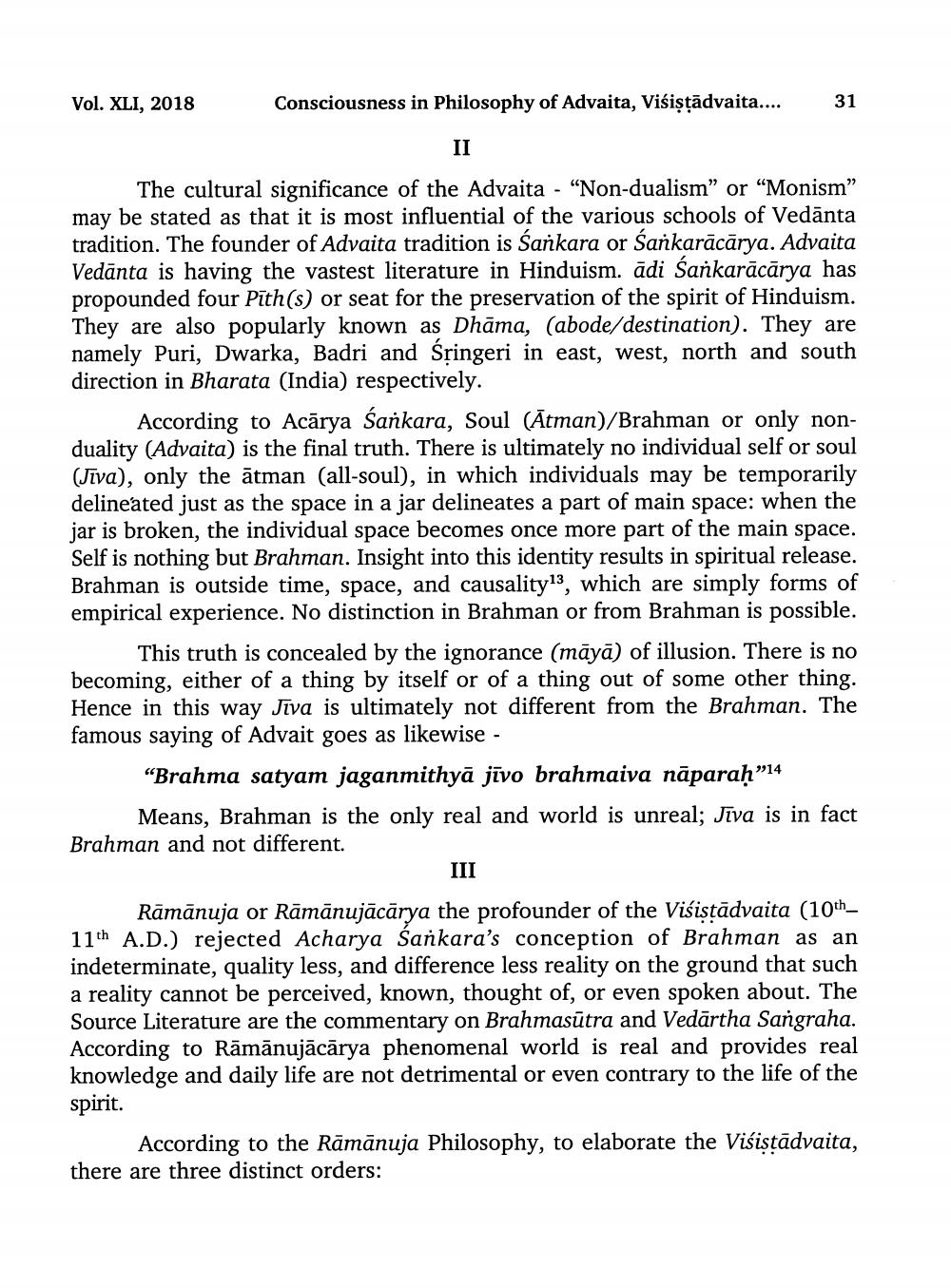________________
Vol. XLI, 2018
Consciousness in Philosophy of Advaita, Viśiştādvaita....
31
II
The cultural significance of the Advaita - "Non-dualism" or "Monism" may be stated as that it is most influential of the various schools of Vedānta tradition. The founder of Advaita tradition is Sankara or Sankarācārya. Advaita Vedānta is having the vastest literature in Hinduism. ādi Sarkarācārya has propounded four Pīth(s) or seat for the preservation of the spirit of Hinduism. They are also popularly known as Dhāma, (abode/destination). They are namely Puri, Dwarka, Badri and Sringeri in east, west, north and south direction in Bharata (India) respectively.
According to Acārya Śarkara, Soul (Ātman)/Brahman or only nonduality (Advaita) is the final truth. There is ultimately no individual self or soul (Jiva), only the ātman (all-soul), in which individuals may be temporarily delineated just as the space in a jar delineates a part of main space: when the jar is broken, the individual space becomes once more part of the main space. Self is nothing but Brahman. Insight into this identity results in spiritual release. Brahman is outside time, space, and causality13, which are simply forms of empirical experience. No distinction in Brahman or from Brahman is possible.
This truth is concealed by the ignorance (māyā) of illusion. There is no becoming, either of a thing by itself or of a thing out of some other thing. Hence in this way Jiva is ultimately not different from the Brahman. The famous saying of Advait goes as likewise -
“Brahma satyam jaganmithyā jīvo brahmaiva nāparaḥ”14
Means, Brahman is the only real and world is unreal; Jīva is in fact Brahman and not different.
III
Rāmānuja or Rāmānujācārya the profounder of the Visistādvaita (10th11th A.D.) rejected Acharya Sarkara's conception of Brahman as an indeterminate, quality less, and difference less reality on the ground that such a reality cannot be perceived, known, thought of, or even spoken about. The Source Literature are the commentary on Brahmasūtra and Vedārtha Sangraha. According to Rāmānujācārya phenomenal world is real and provides real knowledge and daily life are not detrimental or even contrary to the life of the spirit.
According to the Rāmānuja Philosophy, to elaborate the Viśistādvaita, there are three distinct orders:




